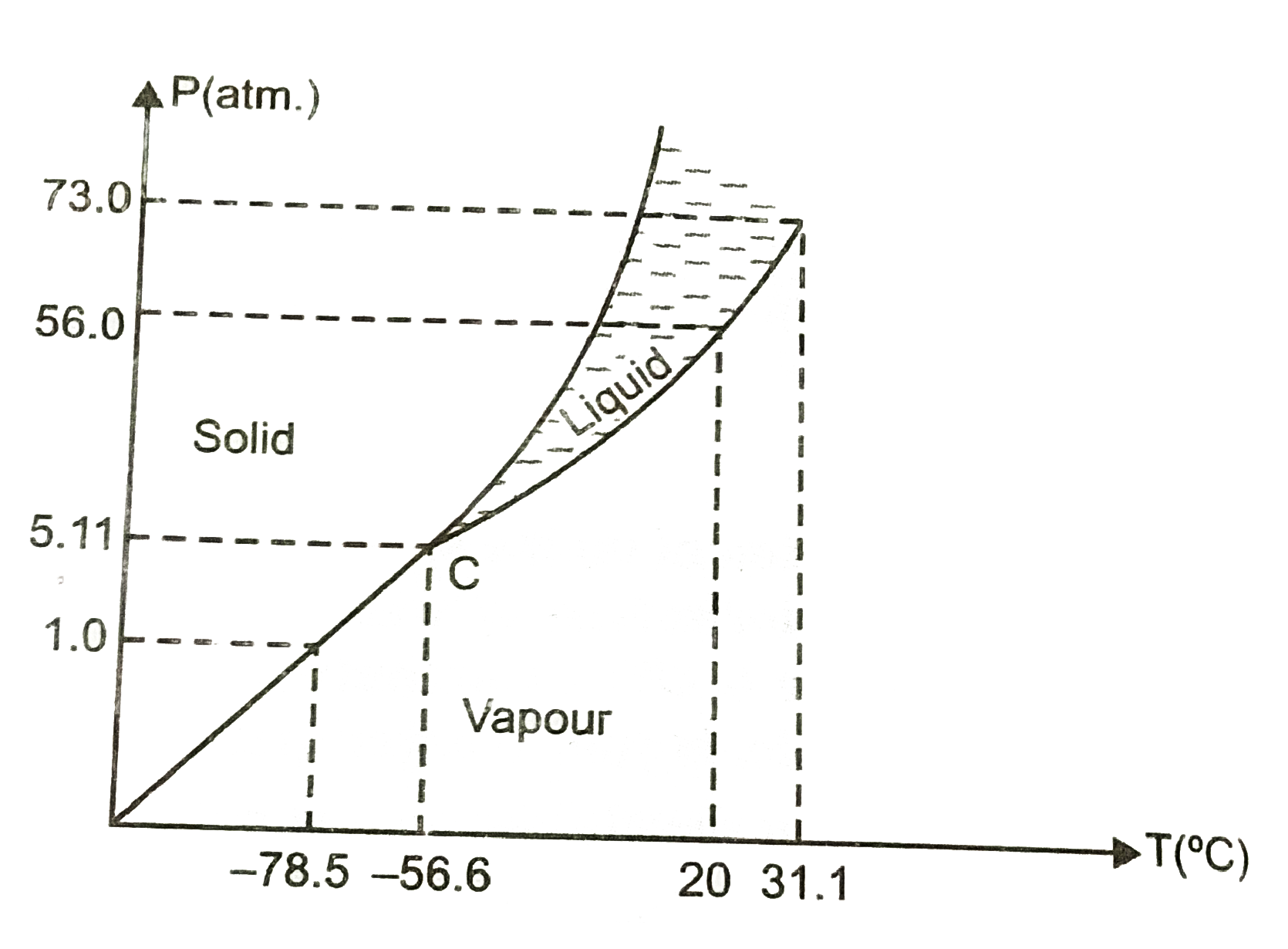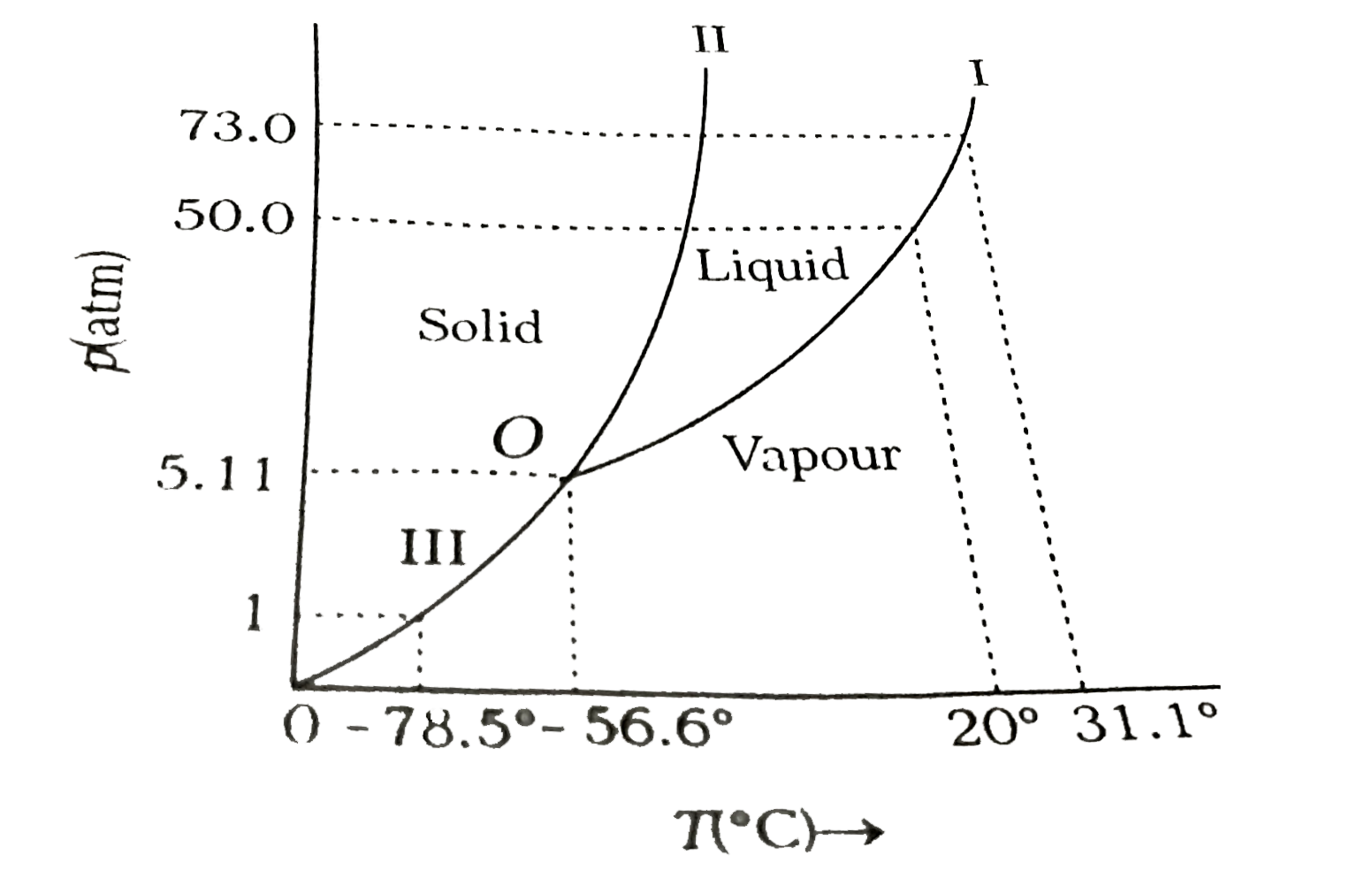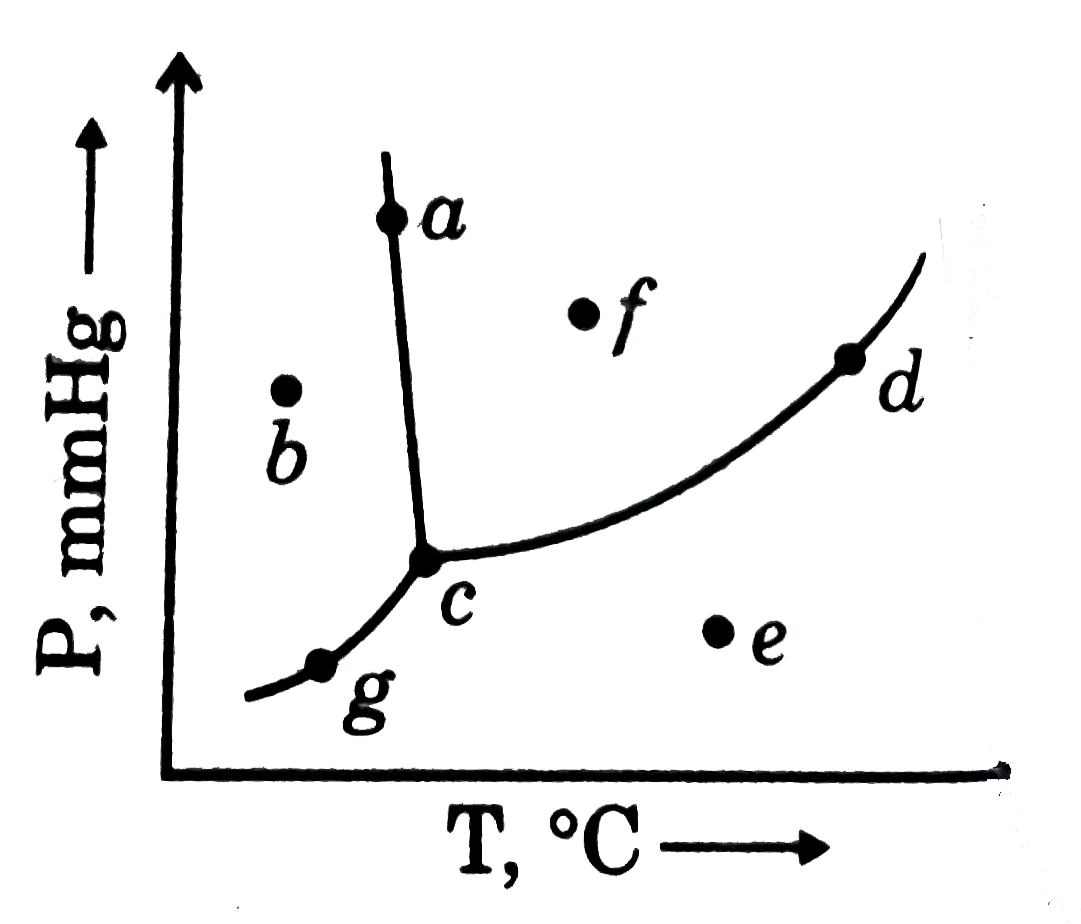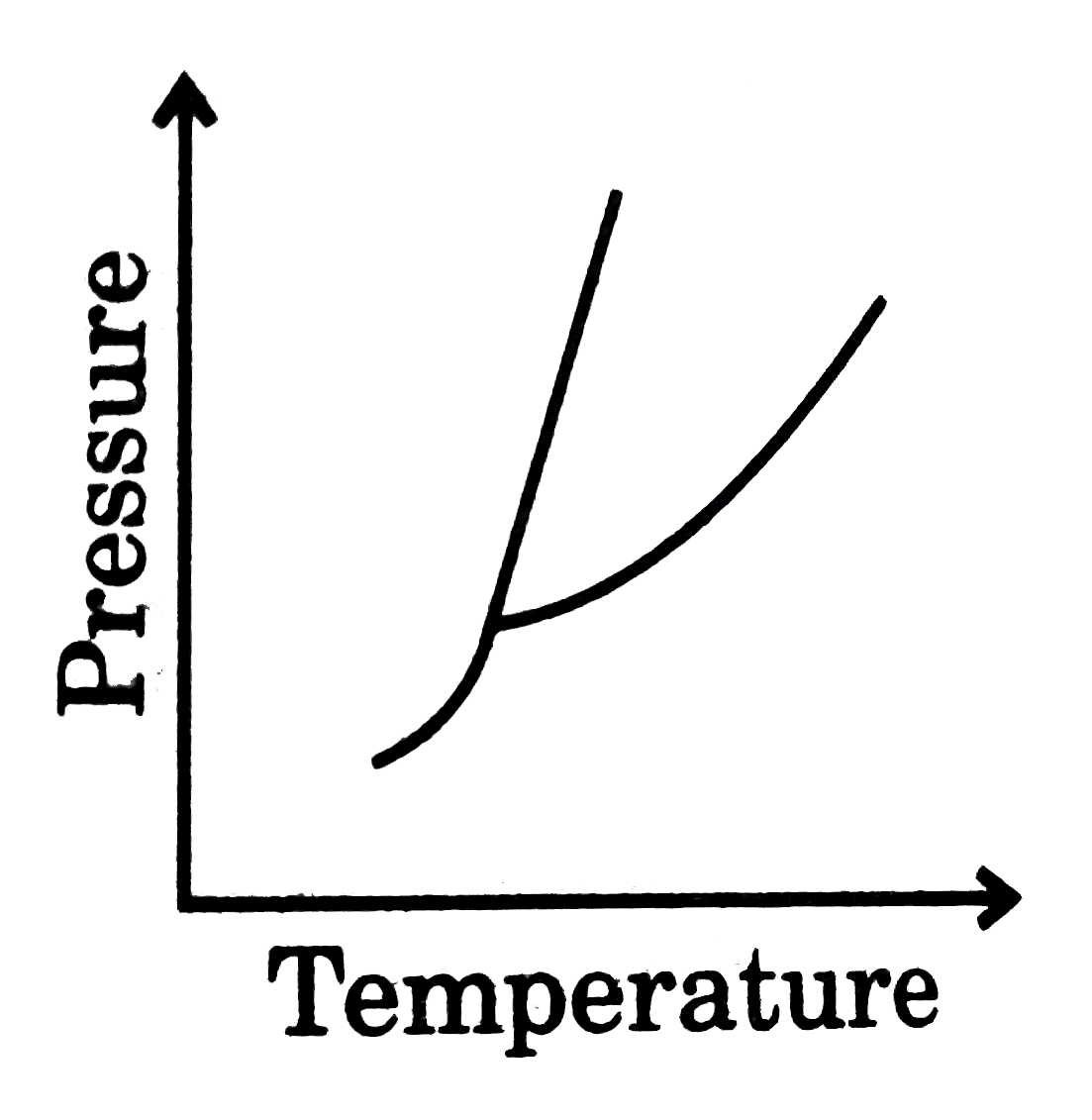Answer the following question beased on tbhe P-T phase diagram of carbon dioxide.

(a) At what temperature and pressure can the solid, liquid and vapour phases of CO2 co-exist is equilibrium ? (b) What is the effect of decrease of pressure on the fusion and bolling point of CO2 ? (c ) What are the critical temperature and pressure for CO2 ? What is their significane ? (d) Is CO2 solid, liquid or gas at (a) −70∘C under 1 atm, (b) −60∘C under 10 atm, (c) 15∘C under 56 atm ?
(a) At the triple point, which exists al a temperature of−56.6∘C and pressure = 5.11 atm.
(b) Both the boiling point and freezing point of CO2 decrease if pressure decreases.
(c) The critical temperature and pressure of CO2 are 31.1∘C and 73.0 atm respectively. Above this temperature, CO2 will not liquefy however high pressures we may apply.
(d) (a) Vapour (b) Solid (c) Liquid.
Topper's Solved these Questions
- THERMAL PROPERTIES OF MATTERBook:MODERN PUBLICATIONChapter:THERMAL PROPERTIES OF MATTERExercise:HIGH ORDER THINKING SKILLS AND ADVANCED LEVEL
Explore 10 Videos
- THERMAL PROPERTIES OF MATTERBook:MODERN PUBLICATIONChapter:THERMAL PROPERTIES OF MATTERExercise:REVISION EXERCISE (VERY SHORT ANSWER QUESTION)
Explore 33 Videos
- THERMAL PROPERTIES OF MATTERBook:MODERN PUBLICATIONChapter:THERMAL PROPERTIES OF MATTERExercise:TOUGH AND TRICKY PROBLEM
Explore 10 Videos
- SYSTEMS OF PARTICLES AND ROTATIONAL MOTIONBook:MODERN PUBLICATIONChapter:SYSTEMS OF PARTICLES AND ROTATIONAL MOTIONExercise:Chapter Practice Test (for Board Examination)
Explore 16 Videos
- UNITS AND MEASUREMENTBook:MODERN PUBLICATIONChapter:UNITS AND MEASUREMENTExercise:CHAPTER PRACTICE TEST
Explore 15 Videos
Similar Questions
Answer the following questions based on the p-T phase diagram of carbon dioxide as shown in the figure .
(i) At what temperature and pressure can the solid , liquid and vapour phases of C02 co-exist in equilibrium?
(ii) What is the effect of decrease of pressure on the fusion and boiling point of C02 ?
(iii) What are the critical temperature and pressure for C02 ? what is their significance ?
(iv) Is C02 solid , liquid, or gas at (a) −70∘Cunder 1 atm (b) −60∘C under 10 atm (c) 15∘C under 56 atm ?

View SolutionWhat is the effect of temperature on the vapour pressure of a liquid?
View Solution
Knowledge Check
The pressure under which liquid and vapour can co-exist at equilibrium is called the
ALimiting vapour pressureBReal vapour pressureCNormal vapour pressureDSaturated vapour pressureThe ratio of rates of diffusion of CO2 and SO2 at the same temperature and pressure will be
A4:√11B11:4C1:4D1:6At a particular temperature and atmospheric pressure, the solid and liquid phases of a pure substance can exist i equilibrium. Which of the following term defines this temperature ?
ANoraml melting pointBEquilibrium temperatureCBoiling pointDFreezing point
Which points in this phase diagram represent conditions of temperature and pressure where liquid will be present ?

View SolutionAccording to the phase diagram, what would be the effect of increasing the pressure on this substance ?

View SolutionAt a particular temperature and atmospheric pressure, the solid and liquid phases of a pure substance can exist i equilibrium. Which of the following term defines this temperature ?
View SolutionThe point on the pressure temperature phase diagram where all the phases co-exist is called
View SolutionA temperature at which the vapour pressure of a solid is equal to the vapour pressure of liquid is called _______.
View Solution

